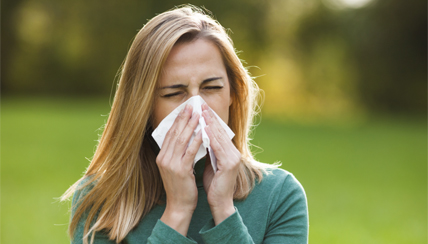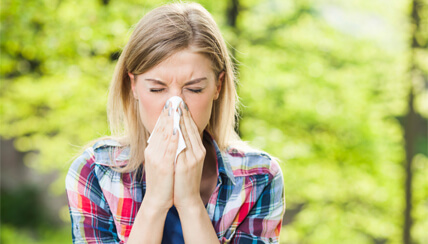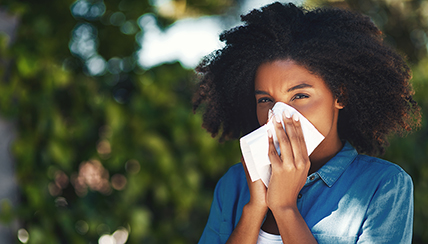Living with Allergies
 When you have allergies, your immune system reacts to a foreign substance (an allergen) as if it were dangerous, even though it is harmless to others. A doctor uses clinical and family histories, physical examination, and skin and laboratory tests to diagnosis allergic disease and identify potential allergic triggers. Allergy symptoms can be successfully relieved through a combination of allergen avoidance, allergy medications and immunotherapy.
When you have allergies, your immune system reacts to a foreign substance (an allergen) as if it were dangerous, even though it is harmless to others. A doctor uses clinical and family histories, physical examination, and skin and laboratory tests to diagnosis allergic disease and identify potential allergic triggers. Allergy symptoms can be successfully relieved through a combination of allergen avoidance, allergy medications and immunotherapy.
The best way to manage allergies is to learn about your allergens and triggers, avoid allergens and take your medication appropriately. For example, if you have pollen allergies, learn when pollen season starts in your area and take allergy medications before allergy symptoms start.
Nasal Wash Guide
A nasal wash is a way to clean the nasal passages and sinus cavities. It's a simple procedure that most people, even children, can do easily.
Allergy Treatment Programs
No matter where you are on the allergy spectrum, get care from the international leader in allergy research and treatment, National Jewish Health. Learn more.
Learn more about Adult Allergy and Pediatric Allergy
View all Specialties & Conditions






 You may also be interested in...
You may also be interested in...